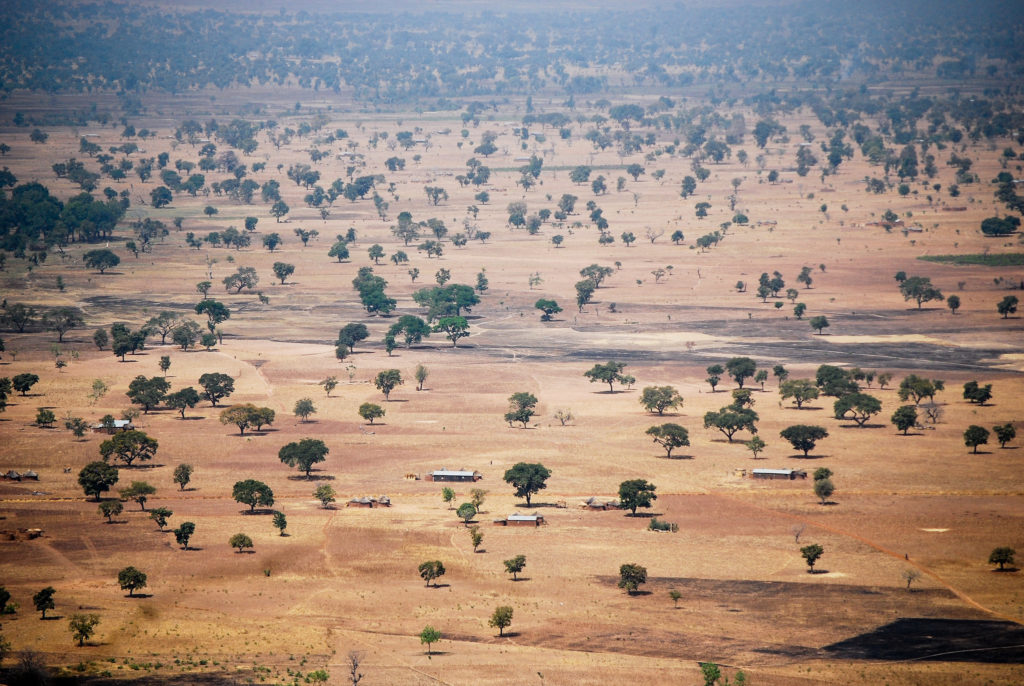Incoming Chair of Least Developing Country Group urges society-wide climate ambition

Madeleine Diouf Sarr, the incoming Chair of the Least Developed Country (LDC) Group of climate negotiators in the UNFCCC, has called for society-wide action to accelerate achievement of the Paris Agreement goals.
Ms Sarr spoke at the IIED event “COP26 Debrief: Where do we go from here?” hosted by Andrew Norton, IIED Director, on 24 November 2021. Ms. Sarr will take the reins from Sonam P. Wangdi of the Kingdom of Bhutan, as Chair of the LDC Group. She is also the Head of the Climate Change Division in Senegal’s Ministry of Environment and Sustainable Development.
Her message following the COP26 climate summit in Glasgow, UK was largely upbeat:
“I am positive, the world is moving on climate action,” she said. “There is a necessity to build ambition everywhere to impact on climate change and countries’ socioeconomic profile(s).
It’s important to show that it’s working – that climate action is profitable to all of us. I see the necessity to work with partners, to bring business people on board and disseminate the best solutions in all countries, including LDCs who are part of the solution. We need to find a way to bring government, civil society and private sector together.”
Ms Sarr also noted that intensive informal consultations that took place before and during COP26 on the Global Stocktake (due for completion in 2023). The Stocktake is a process to aggregate and report on countries’ collective progress on meeting the Paris Agreement’s goals. She reflected: “We need to ensure that NDC [implementation is] ongoing, and that we are putting out enough information to assess at the Global Stocktake”.
Civil society actors will have a particular role – Ms Sarr said – in both implementing climate action directly and informing policy and action at scale:
“[It’s about] getting diverse perspectives in the room for climate change decision-making and recognising [civil society’s] role in transparency and accountability” for climate action”.
Fellow speaker Tara Shine, Chair of IIED’s Board of Directors, concurred that tracking progress is now critical: “Tracking the commitments is hard – we need to track the political commitments but at the end of the day, what matters is absolute emissions reductions.”
Loss and damage funding – how to move forward after Glasgow
The COP26 conference failed to deliver a UNFCCC fund to compensate low-emitting and climate-vulnerable countries for the climate-related losses and damages they suffer, and this disappointed many. Parties opted, instead, to beef up the Santiago Network on Loss and Damage by giving it a Secretariat with a mandate to deliver technical assistance.
However, Mamadou Honadia of Burkina Faso’s Environment Ministry, an advisor to the LDC Group of negotiators, said events in Glasgow had highlighted a possible way forward on loss and damage funding:
The Scottish Government’s contribution of GBP 2 million for loss and damage “sent a strong political signal,” Mr Honadaia said. He suggested that “those who feel they want to do something for developing countries can fund a platform to take action.”
“What the Scottish government has done is important and it will help us to recover” and this could create a parallel process in which donors who “really want to help developing countries” can do so.
Indeed, after the Scottish Government’s announcement, several private philanthropies also committed millions of dollars for loss and damage compensation.
Mr Honadia and Dr Shine joined Ms Sarr in concluding that the Glasgow COP26 summit had kept up just enough momentum and hope for LDCs on key issues.
International finance flows to support all aspects of climate action will be top of LDCs’ list for 2022 negotiations, Mr Honadia added. This will include finding consensus on an international climate finance goal for the post-2025 period that should be several times more ambitious than the US$100 billion/ year that rich countries were meant to mobilise for developing countries by 2020 but have not yet reached.
Watch the entire event here
Image (above) Burkina Faso landsccape (c) Daniel Tivaeau, CIFOR
Reporting by CASA’s Mairi Dupar